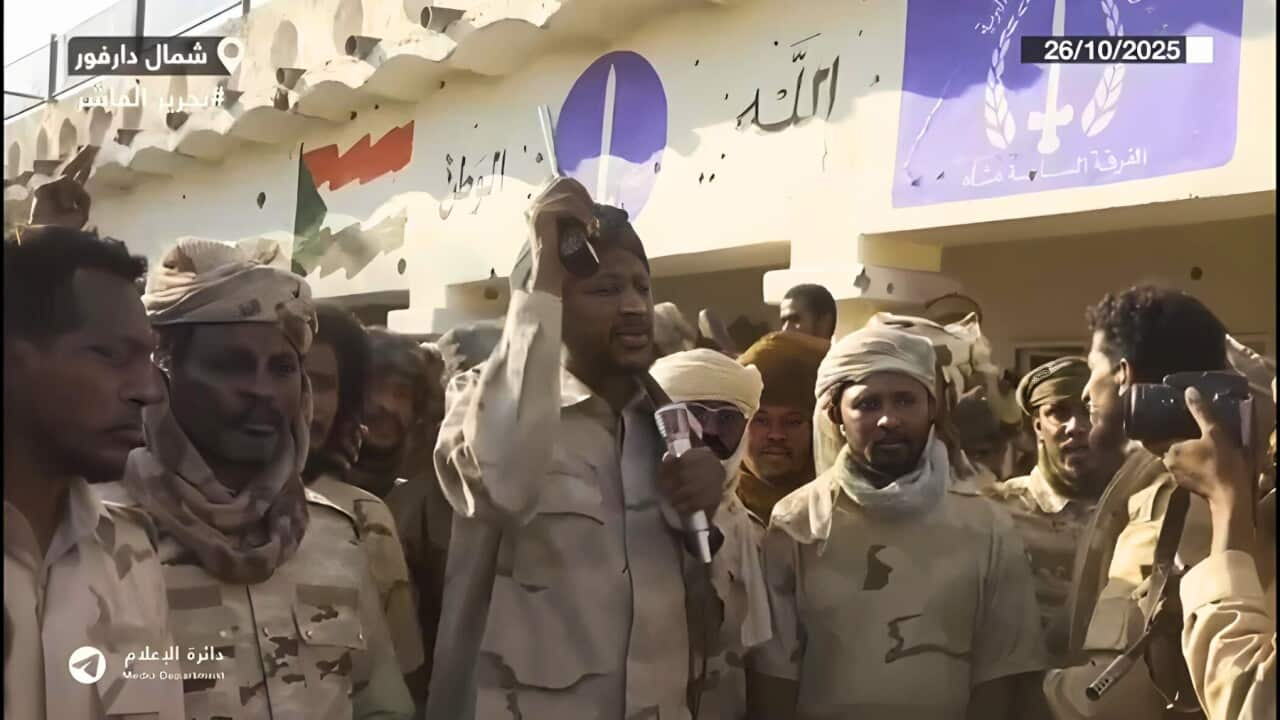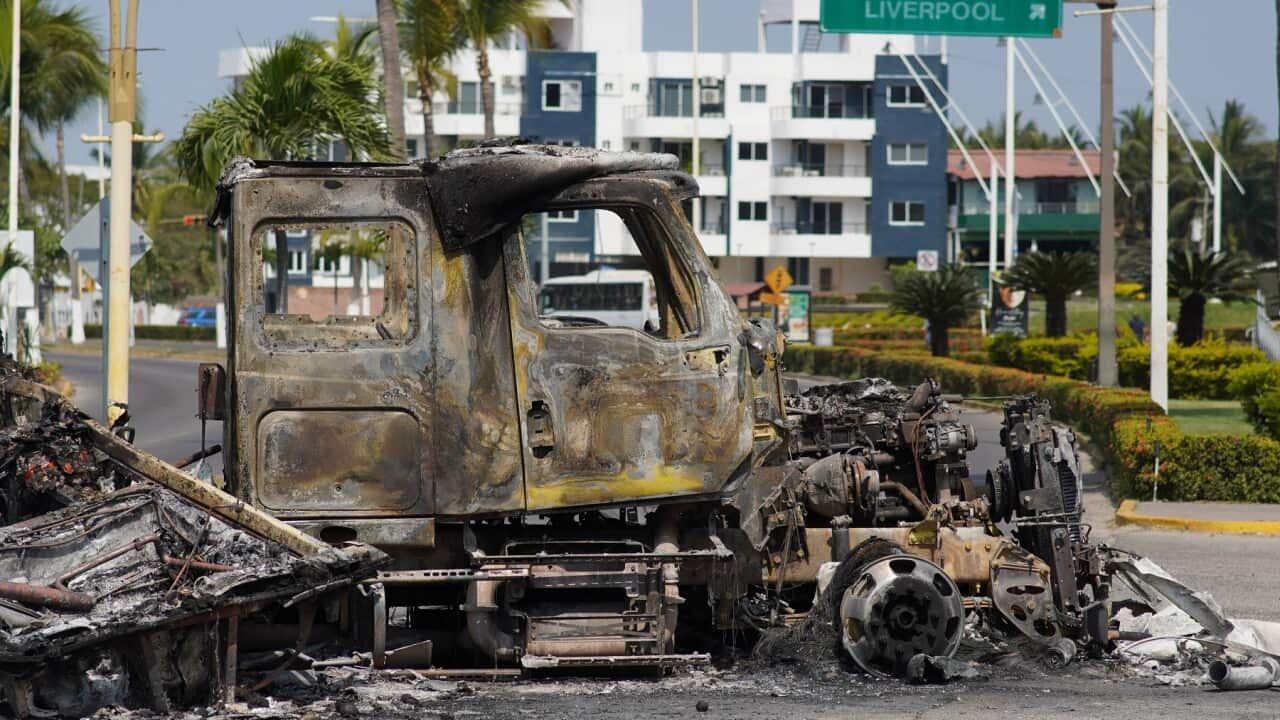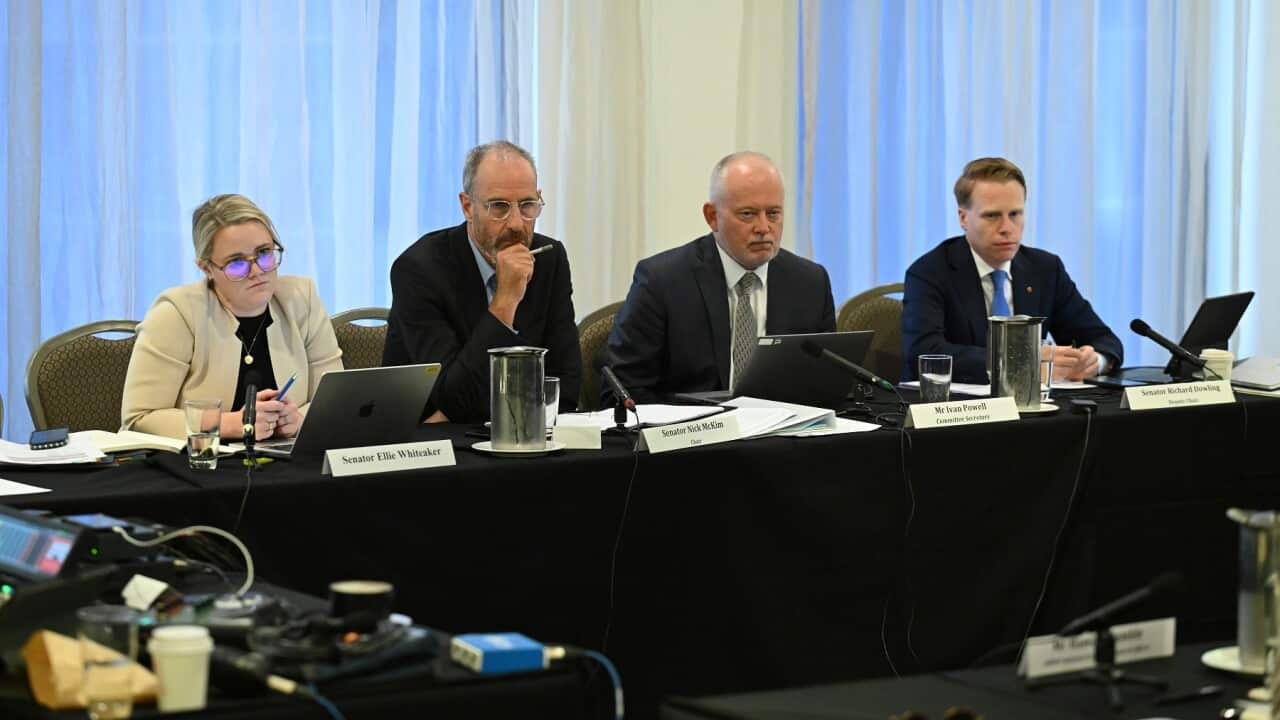Warning: this story contains references to violent and distressing content, including executions.
Listen to Australian and world news, and follow trending topics with SBS News Podcasts.
TRANSCRIPT
After 18 months of war, Sudan’s army has lost its final stronghold in Darfur.
The Rapid Support Forces, a powerful paramilitary group accused of atrocities during the 2000s Darfur conflict, now controls most of western Sudan.
Footage shared by the RSF shows fighters celebrating at the Sixth Infantry Division base in El-Fasher - though the videos haven't been independently verified.
The group’s deputy commander, Abdulrahim Dagalo, declared victory to his troops.
"We congratulate the people of Sudan in general. Victory in el-Fasher and liberation in el-Fasher is the liberation of Sudan to Port Sudan.”
El-Fasher’s fall could fracture Sudan further, echoing the 2011 split that created the new country of South Sudan.
Aid workers say more than 260,000 civilians - half of them children - were trapped in the city before the assault began.
The United Nations says people escaping the city are dehydrated, malnourished, and traumatised.
The agency’s Humanitarian Coordinator in Sudan, Denise Brown, describes the situation.
"Over the past 24 hours, we’ve received multiple reports of an intensification in the fighting in El-Fasher. ... What we do know is civilians escaping are often held for ransom along the road, part of which is controlled by militia. ... Adults and children alike (are arriving) dehydrated, malnourished, some injured, and all traumatised."
Ms Brown says El-Fasher has been under a blockade for more than 500 days, preventing life-saving aid from entering.
She says the RSF must allow civilians to flee - or permit aid agencies to enter.
"There are civilians in el-Fasher. It is a fact. And once again, and we've said it dozens of times, the UN calls on the RSF (Rapid Support Forces) to allow safe passage for them for them to leave, particularly as the fighting has intensified over the past 24 hours."
The UN says at least 128 aid workers have been killed since the war began in April 2023.
Sudan’s army chief, General Abdel-Fattah Burhan, addressed the nation from Port Sudan, confirming that his forces had withdrawn from the city.
He says commanders had decided to retreat to spare civilians from total destruction.
"The leadership there, including the security committee, estimated that they should leave the city due to the systematic destruction and killing of civilians it was subjected to. ... We are determined to take revenge for all our martyrs, we are determined to take revenge for what happened to our people in El-Fasher, the crimes that are being committed now in El-Fasher, and that were committed before that in all parts of Sudan in full view and hearing of the world."
General Burhan accused the RSF of ethnic targeting and vowed to avenge those martyred.
In one video on social media, a soldier wearing an RSF uniform accuses four men dressed in civilian clothing of smuggling flour into El-Fasher, then proceeds to execute them.
The video has not been independently verified.
Meanwhile, experts say El-Fasher’s fall shifts both the military and political balance of the conflict.
From Nairobi, Alan Boswell of the International Crisis Group explains how the RSF’s control strengthens its hand in any future negotiations.
"The RSF was clearly keen to take El-Fasher for numerous reasons. ... It improves their military position, which also strengthens their negotiating position in any peace talks. But I think the focus on El-Fasher was for a number of strategic reasons including the political leverage it would give them, because they now would control more of Sudan. It would probably increase their confidence at the negotiating table and harden their demands at the negotiating table."
Meanwhile, in London, Ahmed Soliman, a Senior Research Fellow at Chatham House, warns the city's capture could unleash ethnic violence like that of earlier Darfur massacres.
“The worries are around, you know, what will the continued impact be for hundreds of thousands of people who are living in this area. ... We've seen actually, you know, in the last 24 hours, numerous videos, very concerning videos being put online by RSF fighters showing them executing civilians and others by way of retribution, having taken over El-Fasher. So the concerns really will be those that have been predominant is that the RSF and its now parallel government won't provide any protection for civilians, that there will be revenge attacks.”
The United States is reportedly trying to convene regional powers - the UAE, Egypt, and Saudi Arabia - to push for a ceasefire.
But analysts doubt a breakthrough is near.
"We're still several steps away from from thinking about something that might be a permanent cease fire and how that might be delivered, what the mechanism is for that, as well as how you eventually get to a civilian government and what civilian means when you have two warring entities that have established their own, quote unquote, civilian administrations which really, you know, don't fully represent the needs and the interests of all of the Sudanese people, in particular those who, you know, have an aspiration to see democracy in the country.”
The Sudan conflict began in April 2023 when fighting erupted between the national army and the RSF - once allies who jointly ousted dictator Omar al-Bashir in 2019.
Since then, UN estimates suggest more than 10 million people have fled their homes, and thousands have been killed.
With El-Fasher’s fall, Darfur - already scarred by two decades of ethnic war - faces another descent into chaos.
Aid workers warn that unless access is restored soon, famine and further atrocities are inevitable.













